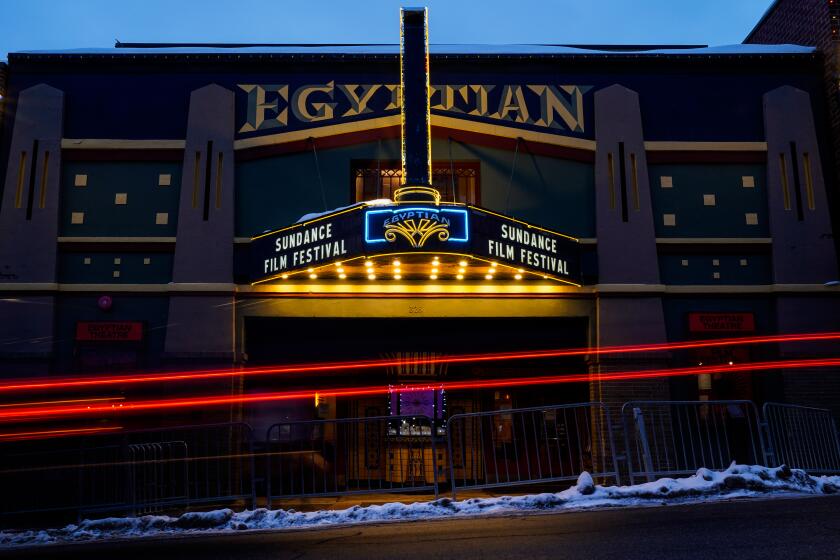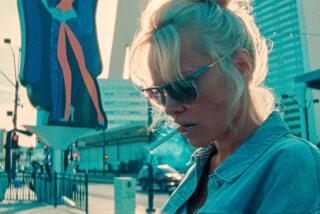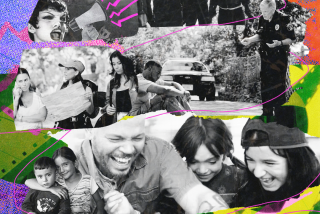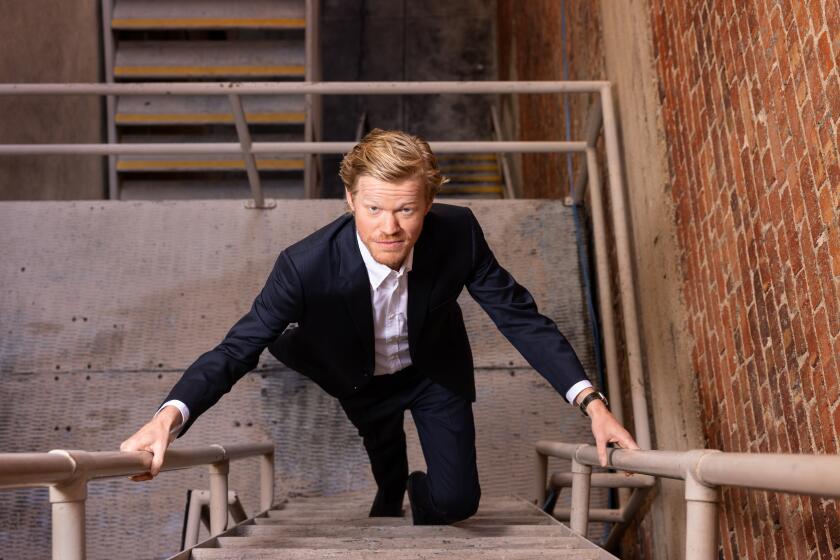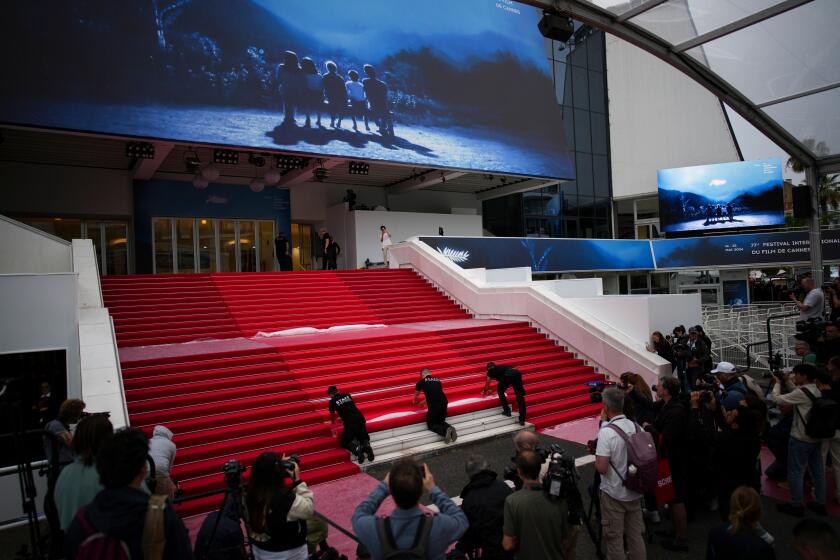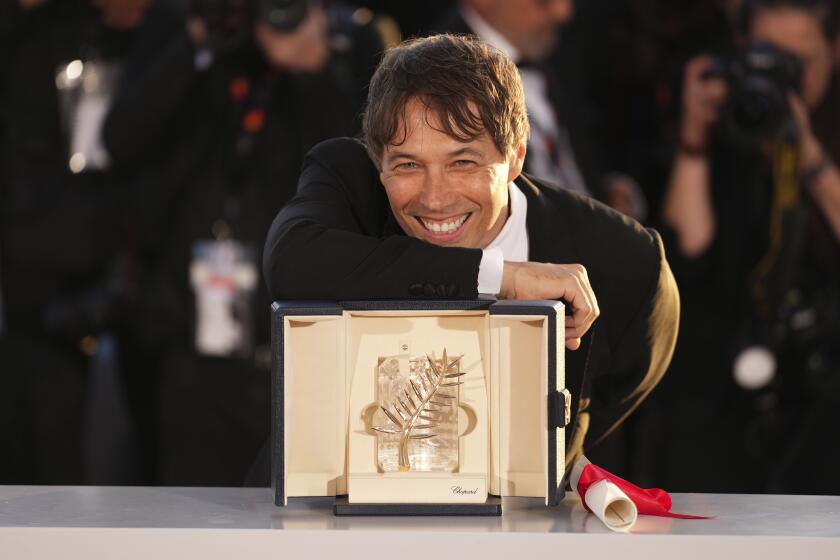Taylor Swift, Will Ferrell and Gloria Steinem lead an eclectic Sundance Film Festival 2020 lineup
“If you can’t get T.S. Eliot,” recording superstar Taylor Swift once famously told Andrew Lloyd Webber, “get T.S.” Next month, the Sundance Film Festival will take that advice as its 2020 edition opens with a world premiere documentary about the “Lover” singer-songwriter, kicking off an eclectic program highlighting indie and global discoveries, star-driven narratives, and hot button docs.
Following the headline-grabbing 2019 exposés of Harvey Weinstein and Michael Jackson that rocked the Park City, Utah-based festival last year, another film poised to be among 2020’s most anticipated tickets is Kirby Dick and Amy Ziering’s recently announced #MeToo documentary. Acquired by Apple and executive produced by Oprah Winfrey, the secretive project tracks a music executive’s decision to come forward with allegations of rape against a powerful mogul.
An Apple TV+ and Oprah Winfrey documentary about a music executive grappling with the trauma of sexual assault by a powerful industry figure will premiere at the 2020 Sundance Film Festival.
For a certain Sundance set, it’s the star-studded celebs that make the mountain trek complete. Titles announced Wednesday in the splashy Premieres section include “Downhill,” a remake of Golden Globe-nominated Swedish dramedy “Force Majeure,” starring Will Ferrell and Julia Louis-Dreyfus; “Worth,” with Michael Keaton as 9/11 Fund appointee Kenneth Feinberg; “Four Good Days,” starring Glenn Close and Mila Kunis in a story involving opioid addiction; and Julie Taymor’s “The Glorias,” featuring Julianne Moore and Alicia Vikander as activist Gloria Steinem.
Also unveiled in Premieres in the first-wave lineup: “Wendy,” the long awaited follow-up from “Beasts of the Southern Wild” director Benh Zeitlin; Dee Rees’ “The Last Thing He Wanted,” starring Anne Hathaway and Ben Affleck; Alan Ball’s “Uncle Frank,” starring Paul Bettany; and closing night film “Falling,” the directorial debut of “Green Book” actor Viggo Mortensen.
Even founder Robert Redford, who’s stepped back from the spotlight in recent years, is set to appear in two very different festival titles: “Natalie Wood: What Remains Behind,” a documentary examining the life and career of the late actress through the eyes of her actress daughter Natasha Gregson Wagner, and the Miami-set omnibus ride “Omniboat: A Fast Boat Fantasia” masterminded by filmmaking collective Borscht Corp. Also pulling double duties: Richard Jenkins, who appears in Miranda July’s “Kajillionaire” and stars in Andrew Cohn’s “The Last Shift,” and Andrea Riseborough, seen in Zeina Durra’s Egypt-set “Luxor” and Brandon Cronenberg’s sci-fi thriller “Possessor.”
Among the new American indies vying in U.S. Narrative Competition — the section that last year yielded awards hopefuls “The Farewell,” “Honey Boy” and “Clemency” — are the Lena Waithe-produced “The 40-Year-Old Version,” directed, written by and starring New York playwright Radha Blank; Midwestern punk odyssey “Dinner in America,” produced by Ben Stiller; Edson Oda’s “Nine Days,” starring Winston Duke and Zazie Beetz; and Lee Isaac Chung’s “Minari,” about a Korean American boy whose family moves to Arkansas, featuring Steven Yeun.
Expect early buzz for Josephine Decker’s “Shirley,” starring Elisabeth Moss as “Haunting of Hill House” author Shirley Jackson, and for teen girl two-hander “Never Rarely Sometimes Always,” from “Beach Rats” helmer Eliza Hittman. And mark your Sundance calendars for “Lemon” director Janicza Bravo’s “Zola,” based on the internet-famous viral tweets of a young woman’s wild weekend trip from Detroit to Florida with a new friend, adapted by Bravo and NYC theater phenom and “Slave Play” scribe Jeremy O. Harris. If you know, you know.
For adventurous late-night cinephiles, “Dear White People” creator Justin Simien’s 1989-set horror satire “Bad Hair” will open the genre-focused Midnight section, where Indonesian filmmaker Joko Anwar’s latest, “Impetigore,” will also premiere alongside David Bruckner’s Rebecca Hall-starring “The Night House,” as well as actress Romola Garai’s directorial debut, “Amulet,” Shana Feste’s Jason Blum-produced “Run Sweetheart Run” and “The Nowhere Inn,” co-written by Carrie Brownstein and singer St. Vincent, aka Annie Clark, who also stars.
Organizers say 2020 marks a big year for Sundance, in which the prestigious festival will invest in a forward-facing emphasis on the future, not just of independent film but of the world. “This year’s Festival is full of films that showcase myriad ways for stories to drive change, across hearts, minds, and societies,” said Redford in a statement.
Sundance enters its 2020 edition with the independent industry in a precarious state — some are screaming at the walls over the streaming evolution and several of this year’s priciest high-profile acquisition essentially belly-flopped in the theatrical market. How does a festival such as Sundance carve out new space and relevance for the future? Rest assured, the question has been on their minds.
“Since the last festival, we’ve been talking about the festival of the future,” said outgoing festival director John Cooper, who after 2020 will transition from his decade-long post to a new role within the Sundance leadership. “How do we breathe new life [into Sundance]? What can change at the festival to make it more dynamic?”
One solution: Build up the festival’s sense of community through expanded, issue-driven conversations following select films. The festival this year will embrace the theme “Imagined Futures” — “IF” for short, according to Cooper. “We’ll be making the conversation of the topics of those films bigger and more inclusive, and bringing in other people that can form a real conversation about it right there, on the spot,” he said.
You can expect many of those urgent conversations to emerge around the documentary slate at Sundance, a consistent launching pad for high-profile nonfiction cinema. This year will see the world premieres of films about LGBTQ activists in Chechnya (“Welcome to Chechnya”) and the youth movement sparked by the teen mass shooting survivors of Parkland, Fla. (“Us Kids”), both in U.S. Documentary Competition, where new films on Bruce Lee (“Be Water”), iconic astrologer Walter Mercado (“Mucho Mucho Amor”) and one journalist’s battle under the regime of Philippine President Rodrigo Duterte (“A Thousand Cuts,” from “Imelda” filmmaker Ramona S. Diaz) will also debut.
After the opening night premiere of T. Swift doc “Taylor Swift: Miss Americana,” produced by Oscar-winner Morgan Neville, directed by Lana Wilson and billed as a “raw and emotionally revealing look” at the recording artist during a transformational point in her career, Sundance will laser in on another corner of the music industry with the untitled latest film from “The Hunting Ground” filmmakers Dick and Ziering, featuring appearances by several women who have accused Russell Simmons of sexual assault.
Additional eye-catching titles in the Doc Premieres section include “Assassins,” about the killing of North Korea’s Kim Jong-nam by two mysterious female assailants; Bryan Fogel’s “The Dissident,” about the murder of Washington Post journalist Jamal Khashoggi; Ron Howard’s “Rebuilding Paradise” tracking recovery efforts in the fire-ravaged town of Paradise, Calif., in 2018’s deadly Camp Fire; and the Ai Weiwei-helmed “Vivos,” about the 2013 mass abductions and deaths of students in Iguala, Mexico.
Of the feature slate announced today, titles hail from 27 countries and 44 first-time filmmakers. Across the four competition categories, 46% of the 56 films were directed by women, 38% by filmmakers of color, and 12% by LGBTQ+ helmers. Among the titles vying in U.S. Dramatic Competition, 47% are directed by women; 53%, by filmmakers of color; and 5%, LGBTQ+. On the nonfiction side in U.S. Documentary Competition, 45% of directors are women; 23%, filmmakers of color; and 23%, LGBTQ+.
What unites the storytellers across Sundance’s slate, says Kim Yutani, director of programming, is a common singularity of vision regardless of the size or scope of the film. “We have a program this year that showcases big political thrillers like ‘Ironbark,’ which stars Benedict Cumberbatch and then we have in international competition films that are not quite as big, like the Belgian film ‘Jumbo,’ about a young woman who falls in love with an amusement park attraction,” she said. “To be able to see that kind of range of voices and all the things in between is, I think, what makes our festival special and makes us a welcoming place for people who want to tell stories that only they can tell.”
Daring new American voices push boundaries in the NEXT section, where after opening with “Blindspotting” helmer Carlos Lopez Estrada’s slam poetry pic “Summertime,” Aubrey Plaza imposes her way into the lives of a married couple in “Black Bear,” an undocumented L.A. teen fights to remain in America in Patricia Vidal Delgado’s “La Leyenda Negra,” and “Stranger Things” costar Joe Keery rampages for likes from behind the wheel of a rideshare in “Spree.”
This year’s Sundance program was selected from a record number of 15,100 submissions, up from last year’s previous record of 14,259 submissions. Among 2020’s feature length submissions, 29% were directed by one or more women, 40% directed by one or more filmmakers of color, and 15% were directed by one or more filmmakers identifying as LGBTQ+.
“Part of the programming conversation and having best practices is always talking about inclusivity,” said Yutani, who stepped into her programming role last year. “It doesn’t always mean that we’re always going to reach 50/50 or have a certain percentage every year. [But] this is part of the reason we publish statistics for our submissions, so that we can see who is making the films and who is submitting films to us, and we can actually react to those numbers and try to do something to help change those numbers.”
With his final Sundance as festival director on the horizon, it’s in the work itself that Cooper finds hope for indie cinema, even as Baby Yodas, screen-hogging franchise films and peak TV draw audience attentions elsewhere.
“Sustainability is another issue, but for me it feels very healthy in what the artistic representation is in the films we’re seeing,” said Cooper. “They’re not shying away from controversy, from new ideas, from new ways of telling stories. Not at all. I think that they’re expanding and revolutionizing how stories can be told, and I think that’s success for me.”
Additional titles and more information on next year’s lineup can be found on the official Sundance site.
More to Read
Only good movies
Get the Indie Focus newsletter, Mark Olsen's weekly guide to the world of cinema.
You may occasionally receive promotional content from the Los Angeles Times.
